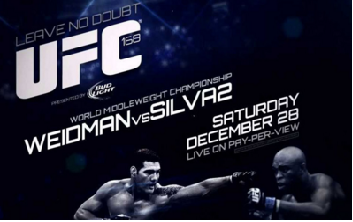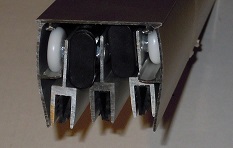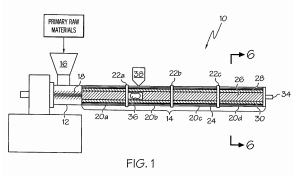The Lanham Act’s ban on registering disparaging marks violates the First Amendment of the Constitution held the Federal Circuit, sitting en banc, on December 22, 2015. In re Tam, en banc Fed. Cir., No. 2014-1203, oral argument 12/22/2015.
In a case involving the refusal to register the term “The Slants” for a group of Asian musicians, the court concluded that the disparagement provision of the Lanham Act is used to reject trademarks based on their content and viewpoint, and that denying the benefit of registration on this basis is an unlawful burden on free speech.
Background
After the U.S. Patent and Trademark Office refused to register the “The Slants” mark as disparaging under Section 2(a) of the Lanham Act, 15 U.S.C. § 1052(a), the applicants appealed to the Federal Circuit. The Federal Circuit panel affirmed based on In re McGinley, 660 F.2d 481 (CCPA 1981), which found no First Amendment violation since the applicant was free to use the mark without the registration.
However, Judge Moore, in her “additional views,” said that McGinley should be reconsidered by the en banc in light of current First Amendment jurisprudence stating that the government may not deny a benefit based solely on a moral judgment about the viewpoint expressed by a mark. The Federal Circuit granted en banc review on whether Section 2(a) violates the First Amendment.
Disparagement Provision Is Neither Content Nor Viewpoint Neutral
It is beyond dispute that Section 2(a) discriminates on the basis of content and viewpoint to the extent that it denies registration on the basis of the idea or message expressed, the court held. It rejected the government’s argument that the provision calls for rejection of marks based on particular words rather than viewpoints. Judge Moore pointed out that an applicant can register a mark if he shows it is perceived by the referenced group in a positive way, even if the mark contains language that would be offensive in another context.
Nor can the government avoid strict scrutiny of the provision by contending that it simply regulates commercial speech, Judge Moore continued. While trademarks have a commercial function as source identifiers, she explained, it is always a mark’s expressive character that is the basis for the disparagement exclusion from registration, not its ability to serve as a source identifier.
The en banc court expressly overruled In re McGinley, rejecting the argument that denial of a trademark registration does not prohibit use of the trademark. Citing Perry v. Sindermann, 408 U.S. 593(1972), Judge Moore pointed out that, by denying the government benefit based on constitutionally protected speech, a government could penalize and inhibit that freedom. She wrote the following:
Federal trademark registration brings with it valuable substantive and procedural rights unavailable in the absence of registration. These benefits are denied to anyone whose trademark expresses a message that the government finds disparages any group, Mr. Tam included. The loss of these rights, standing alone, is enough for us to conclude that § 2(a) has a chilling effect on speech. Denial of federal trademark registration on the basis of the government’s disapproval of the message conveyed by certain trademarks violates the guarantees of the First Amendment.
Government Speech and Government Subsidy
The court also rejected the contention that trademark registration is government speech and therefore beyond the terms of the First Amendment. While registered trademarks are recorded on a government database, that doesn’t convert the underlying speech to government speech any more that copyright registration converts copyrighted works into government speech, Judge Moore noted. “If being listed in a government database or published in a list of registrations were enough to convert private speech to government speech, nearly every action the government takes–every parade permit granted, every property title recorded, every hunting or fishing license issued–would amount to government speech,” she wrote.
Nor was the Federal Circuit persuaded that the provisions of Section 2(a) set out a variety of legitimate conditions for providing the government subsidy of trademark registration, pointing out that the availability of government subsidies may not be limited by unconstitutional conditions. While Congress is entitled to define the conditions under which it extends government benefits, the court noted that the denial of registration has a major chilling effect on private speech because the benefits of registration are so substantial.
Judge Moore added the following:
Were we to accept the government’s argument that trademark registration is a government subsidy and that therefore the government is free to restrict speech within the confines of the trademark program, it would expand the “subsidy” exception to swallow nearly all government regulation. In many ways, trademark registration resembles copyright registration. Under the logic of the government’s approach, it follows that the government could refuse to register copyrights without the oversight of the First Amendment. Congress could pass a law prohibiting the copyrighting of works containing “racial slurs,” “religious insults,” “ethnic caricatures,” and “misogynistic images.”
Judge O’Malley filed a concurring opinion, writing separately to argue that Section 2(a) is unconstitutionally vague under the Fifth Amendment.
Judge Dyk filed a concurring and dissenting opinion, arguing that the majority goes too far in concluding that the statute is facially unconstitutional as applied to purely commercial speech.
Judge Lourie filed a dissenting opinion, explaining that he would apply stare decisis to sustain Section 2(a).
Judge Reyna filed a dissenting opinion, arguing that Section 2(a) is an appropriate regulation of commercial speech.
Practice Tip: The availability of trademark protection for the Washington Redskins trademark, which was also denied federal trademark protection on the grounds that it was disparaging, is currently under review by the Fourth Circuit Court of Appeals.
Continue reading













